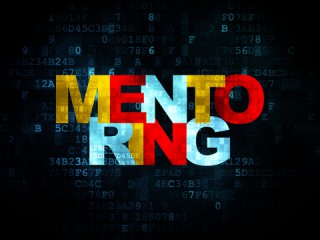This blog is an extract from Chris Trengove’s blog on ‘Can you Learn to write?’ Chris is a BCre8ive Creative Champion, one of our team of experienced advisors who support our work on developing new ideas, mentoring talent, and creative collaborations. Read here what he thinks is the benefit of mentoring, and how it might help you write “a little bit better”.
So if you can’t learn to write, what can you learn? I have to go back a few years, to 2004, when I was first asked to mentor at a scriptwriting workshop. I was a little sceptical, as my writing career had been firmly based around the principle of ‘write; then write some more; then write some more.’ Honing my craft, I’d worked as a journalist and an advertising copywriter. I wrote a lot, and over the course of the years worked out what was bad and what as good, and bit by bit impressed enough people that I was able to make a living at it. Workshop? A word that I’d hitherto only associated with piles of old tyres and an ailing Ford Mondeo on a ramp. However, I said yes, as I was curious, I was going to get paid, and I make it a professional rule to say yes to everything.
Truthfully I had no idea what to expect, or even what I was supposed to do, but over the course of the first week, at a big old house in the Kent countryside, it slowly became apparent that I wasn’t expected to be a teacher of writing – the participants all had at least some professional experience – but a kind of roving counsellor-cum-sounding-board-cum-sympathetic ear. I was able to help not by commenting on paragraph structure or the minutiae of dialogue, but by talking, guiding, suggesting, throwing ideas at the participants that they might not have thought of themselves.
What I was offering them was the practical expertise that I’d built up over the course of a couple of decades, helping them out of holes that y might have written themselves into, working with them to make their projects as good as they possibly could be. Often, it was simply a case of pointing out a way forward that hadn’t occurred to them: “why don’t you try this?”, “why don’t you try that?” In the end you have to teach yourself, and a good educator is someone who gives you the tools and inspiration to do just that.
I also quickly realised that what I was doing was what a good editor does: clearing a way for the writer to best realize their ‘vision’, without compromising their creative signature. Like most writers, over the years I’ve edited and I’ve been edited, and I’ve come to realise that the greatest gift the good editor can bring to a project is simply a second pair of (informed, interested, expert) eyes. When you’re working on a project, there’s always a point at which you can’t see the wood for the trees. To mix metaphors, you’re so involved in nurturing your baby that you don’t notice that it has an extra couple of toes. It takes someone else to do that, to gently point the fact out, and to suggest solutions. Many psychiatrists see psychiatrists: to quote a fictional example, in The Sopranos, Tony’s psychiatrist Dr. Melfi regularly sees a psychiatrist herself, colleague Dr. Kupferberg, to maintain and tune her own mental balance.
What else? Well, interest is all. I’m a lifelong jazz fan and occasional musician, and if I can’t play something, at least I know how it should be played, because I love the music and have spent countless hours listening to top players. But from talking to music teachers, I know that many come to jazz playing without any real history of listening – they’ve heard Norah Jones in a wine bar and think they like jazz, whereas what they like is something that sounds a bit like jazz. If you’re not into it, why would you want to play it? Same with writing – if you’re not a reader, you’ll probably never be a writer, and why would you want to be? Again I, and others in my field, report that many would-be writers seem to have read little. Or, if they’re scriptwriters, they don’t have a working knowledge of the classic movies or TV shows, even in the field they’re working in.
So, to go back to my original thesis – can you learn to write? No – but if you’ve got the spark, the basic skills, the right help can make a difference. Help you speed the process up. Perhaps help you bypass some of the heavy lifting that writers had to do before the advent of creative writing courses and the like. My experience of workshops over the years has shown me that overall, they provide a positive and inspiring experience for both mentors and participants. The people who take them already pretty much know to write; but by listening, trying this, trying that, experimenting within a nurturing environment, they can learn how to write just a little bit better.
You can read the whole of ‘Can you learn to write?” HERE
For a list of all our Creative Champions go HERE

